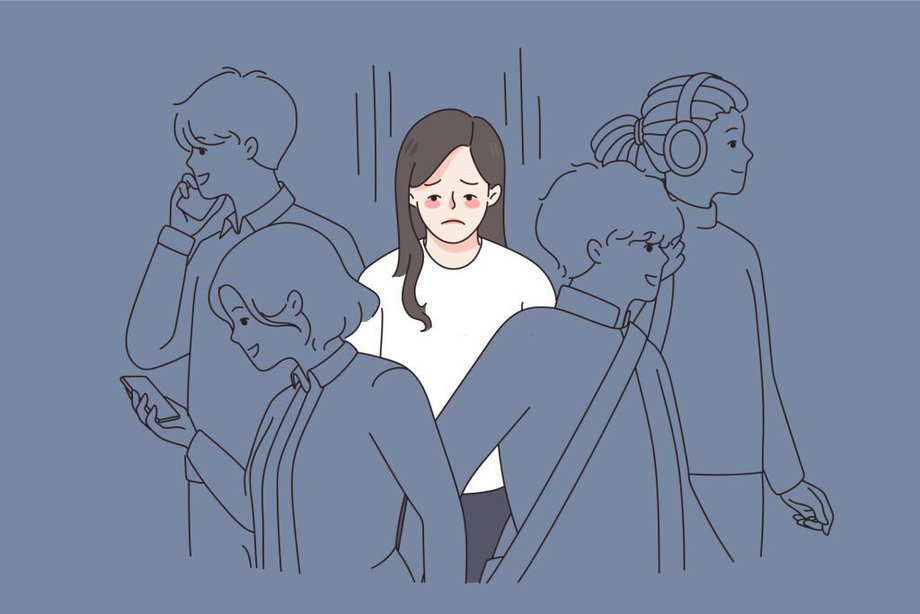What Are Antianxiety Medications And How Do They Treat Social Anxiety?

Social anxiety disorder is a common mental health condition characterized by intense fear and discomfort in social situations. Individuals with social anxiety often experience significant distress and impairment in their daily lives.
Antianxiety medications are commonly prescribed to alleviate the symptoms associated with social anxiety. This article aims to provide an overview of antianxiety medications and their role in treating social anxiety. The discussion focuses on three main types of medications: selective serotonin reuptake inhibitors (SSRIs), benzodiazepines, and beta blockers. Each category of medication is examined in terms of its mechanism of action, effectiveness, and potential side effects.
Additionally, the article explores the limitations of medication as a standalone treatment and highlights the importance of combining medication with cognitive-behavioral therapy and lifestyle changes for optimal outcomes. By understanding the role of antianxiety medications, individuals with social anxiety and healthcare professionals can make informed decisions regarding treatment options.
Key Takeaways
- Antianxiety medications, such as SSRIs, benzodiazepines, and beta blockers, are commonly prescribed for social anxiety disorder.
- SSRIs work by increasing serotonin levels in the brain, regulating mood and anxiety, and reducing social anxiety symptoms.
- Benzodiazepines enhance the activity of GABA, reducing anxiety symptoms, but they come with the risk of sedation, impaired cognitive function, and potential abuse and dependence with long-term use.
- Beta blockers help reduce physical symptoms of anxiety by blocking the effects of adrenaline on beta-adrenergic receptors, making it easier to cope with anxiety-inducing situations.
Understanding Social Anxiety Disorder
Social anxiety disorder, also known as social phobia, is a mental health condition characterized by an intense fear and avoidance of social situations. Individuals with this disorder often experience significant distress and anxiety when faced with social interactions, such as public speaking or meeting new people.
Symptoms of social anxiety disorder include excessive self-consciousness, fear of judgment or scrutiny, and physical symptoms like sweating or trembling. Common triggers for social anxiety can vary from person to person, but may include situations such as attending parties, speaking in front of others, or engaging in small talk.
By understanding the symptoms and common triggers of social anxiety disorder, individuals can seek appropriate treatment options, such as therapy or medication, to effectively manage their symptoms and improve their quality of life.
The Role of Antianxiety Medications
In addressing the role of antianxiety medications in the management of social anxiety, it is crucial to examine their therapeutic effects and potential benefits.
- Antianxiety medications, such as selective serotonin reuptake inhibitors (SSRIs), have shown effectiveness in reducing the symptoms of social anxiety disorder. They work by increasing the levels of serotonin in the brain, which helps regulate mood and anxiety.
- Another class of antianxiety medications, benzodiazepines, can provide short-term relief from social anxiety symptoms by enhancing the effects of a neurotransmitter called gamma-aminobutyric acid (GABA), which helps calm the brain.
- Antianxiety medications can help individuals with social anxiety disorder manage their symptoms and improve their quality of life.
However, it is important to note that these medications may have potential side effects, such as drowsiness, dizziness, and dependency. Therefore, individuals considering antianxiety medications should consult with a healthcare professional to weigh the potential benefits against the risks.
Selective Serotonin Reuptake Inhibitors (SSRIs)
Selective serotonin reuptake inhibitors (SSRIs) are a class of medications that have demonstrated their efficacy in alleviating symptoms associated with a particular anxiety disorder. SSRIs work by increasing the levels of serotonin, a neurotransmitter, in the brain.
Serotonin is involved in mood regulation, and low levels of serotonin have been associated with anxiety and depression. By inhibiting the reuptake of serotonin, SSRIs help to increase its availability in the brain, which can lead to improvements in mood and reduction of anxiety symptoms.
SSRIs are commonly prescribed for the treatment of social anxiety disorder (SAD), a condition characterized by intense fear and avoidance of social situations. Research has shown that SSRIs can be effective in reducing symptoms of SAD, including excessive worry, fear of judgment, and avoidance of social interactions. However, it is important to note that the response to SSRIs can vary among individuals, and not everyone may experience significant improvement.
While SSRIs are generally well-tolerated, they can have potential side effects. These may include nausea, headache, sexual dysfunction, and gastrointestinal disturbances. It is important for individuals considering SSRIs for the treatment of social anxiety to discuss the potential benefits and risks with their healthcare provider.
Benzodiazepines
Benzodiazepines, a class of anxiolytic medications, are commonly used for the treatment of anxiety disorders. These medications work by enhancing the activity of gamma-aminobutyric acid (GABA), a neurotransmitter that inhibits brain activity.
Benzodiazepines are effective in reducing anxiety symptoms and promoting relaxation. However, their use is associated with various side effects, including sedation, drowsiness, and impaired cognitive function. Additionally, benzodiazepines have the potential for abuse and dependence, especially with long-term use. Therefore, they are typically prescribed for short-term use or in specific situations, such as acute anxiety episodes.
Alternatives to benzodiazepines, such as selective serotonin reuptake inhibitors (SSRIs), are often preferred due to their lower risk of dependence and fewer side effects.
It is important for healthcare professionals to carefully weigh the benefits and risks of benzodiazepine use to ensure optimal treatment outcomes for individuals with social anxiety disorder.
Beta Blockers
Beta blockers, a class of medications commonly used for cardiovascular conditions, have also been found to be effective in reducing the physical symptoms of anxiety, such as rapid heartbeat and trembling. Understanding beta blockers is essential in comprehending their role in treating social anxiety.
Firstly, beta blockers work by blocking the effects of adrenaline on the beta-adrenergic receptors, which are responsible for the fight-or-flight response. This mechanism helps to reduce the physical symptoms associated with anxiety, giving individuals a sense of calmness.
Secondly, beta blockers are particularly useful in situations where the physical symptoms of anxiety hinder performance, such as public speaking or performing on stage. By alleviating symptoms like sweating or shaking, beta blockers can improve an individual’s ability to cope with anxiety-inducing situations.
However, it is important to note that beta blockers do not address the underlying psychological causes of anxiety. Additionally, like any medication, beta blockers can have side effects, including fatigue, dizziness, and low blood pressure. It is therefore crucial to consult with a healthcare professional before starting or adjusting any medication regimen.
Cognitive-Behavioral Therapy (CBT)
Combining medication with therapy is a common approach in the treatment of social anxiety.
Cognitive-Behavioral Therapy (CBT) is particularly important in this treatment as it focuses on identifying and changing negative thought patterns and behaviors that contribute to social anxiety.
CBT helps individuals develop effective coping strategies and gradually face their fears in a supportive and structured manner.
Combining Medication with Therapy
When addressing social anxiety, it is important to consider the potential benefits of incorporating therapy along with medication.
Antianxiety medications can be effective in alleviating the symptoms of social anxiety disorder. However, they are not a standalone solution and should be used in conjunction with therapy for optimal results.
Combining medication with therapy offers a more comprehensive approach to treating social anxiety. Here are three reasons why this combination is beneficial:
- Medication effectiveness: Antianxiety medications can help reduce anxiety symptoms such as excessive worry, fear, and panic. They work by regulating neurotransmitters in the brain that are associated with anxiety. This can provide immediate relief and make it easier for individuals to engage in therapy.
- Alternative treatments: In some cases, medication may not be the preferred or only treatment option. Therapy can offer alternative approaches such as cognitive restructuring, exposure therapy, and social skills training. These techniques can help individuals develop coping strategies, challenge negative thought patterns, and gradually face feared social situations.
- Long-term management: Therapy provides individuals with the tools and skills necessary to manage social anxiety in the long term. It helps individuals understand the root causes of their anxiety and develop healthy coping mechanisms. By addressing underlying issues, therapy can help prevent relapse and promote lasting change.
In conclusion, combining medication with therapy can enhance the effectiveness of treatment for social anxiety. Medication can provide immediate relief, while therapy offers alternative treatments and long-term management strategies.
Importance of CBT in Social Anxiety Treatment
Cognitive Behavioral Therapy (CBT) is a crucial component of treating social anxiety as it focuses on identifying and addressing negative thought patterns and behaviors that contribute to the disorder.
The importance of a skilled therapist in CBT cannot be overstated. A therapist with expertise in CBT techniques can guide individuals with social anxiety in challenging and restructuring their irrational beliefs and distorted thinking patterns. They help the individual develop more realistic and adaptive thoughts, which in turn lead to more positive behaviors and improved social interactions.
The therapist also plays a key role in facilitating exposure exercises, where individuals gradually confront feared social situations in a controlled and supportive environment. Through this process, individuals learn to tolerate and cope with anxiety, gradually reducing its impact on their daily lives.
Overall, the presence of a skilled therapist is essential in ensuring the effectiveness of CBT in treating social anxiety.
Lifestyle Changes and Self-Care
Engaging in activities that promote relaxation and self-care, such as practicing mindfulness or engaging in regular exercise, can contribute to a more balanced and resilient lifestyle, potentially alleviating symptoms of social anxiety.
Self-help strategies and alternative treatments are often recommended as complementary approaches to traditional therapy for social anxiety. Mindfulness techniques, such as deep breathing exercises and meditation, can help individuals develop a greater sense of self-awareness and reduce anxiety symptoms.
Regular exercise has also been shown to have a positive impact on mental health, as it releases endorphins and reduces stress. In addition, maintaining a healthy diet and getting enough sleep can support overall well-being and improve resilience to stress.
Other self-care practices, such as engaging in hobbies, spending time with loved ones, and setting aside time for relaxation, can also contribute to a more positive mindset and help individuals cope with social anxiety.
Seeking Professional Help and Support
Seeking professional help and support is a crucial step in addressing social anxiety, as it allows individuals to access evidence-based treatments and receive guidance from trained professionals who specialize in anxiety disorders. Professional guidance provides a structured approach to managing social anxiety, incorporating various therapeutic techniques such as cognitive-behavioral therapy (CBT) and exposure therapy. CBT helps individuals identify and challenge negative thought patterns and develop coping strategies, while exposure therapy gradually exposes individuals to anxiety-provoking situations to reduce fear and avoidance. Additionally, seeking professional help allows individuals to build a support network of like-minded individuals who understand their experiences and offer empathy and encouragement. This support network can provide a sense of belonging and validation, reducing feelings of isolation commonly associated with social anxiety.
| Benefits of Seeking Professional Help and Support |
|---|
| Access to evidence-based treatments |
| Guidance from trained professionals |
| Structured approach to managing social anxiety |
| Building a support network of understanding peers |
Frequently Asked Questions
Natural remedies and holistic approaches can be effective alternatives to medication for social anxiety. These may include cognitive-behavioral therapy, relaxation techniques, exercise, herbal supplements, and mindfulness practices. Such approaches aim to reduce anxiety symptoms and promote overall well-being.
The duration of antianxiety medication effects varies depending on the specific medication and individual factors. Antianxiety medications have been found to be effective in treating various types of anxiety disorders, including social anxiety.
Antianxiety medications can be used as a long-term solution for social anxiety, but their long-term effectiveness is still debated. Alternative therapies, such as cognitive-behavioral therapy, may also be considered as treatment options for social anxiety.
Potential side effects and risks associated with taking antianxiety medications for social anxiety include drowsiness, dizziness, nausea, and dependency. These medications may also interact with other drugs, causing adverse effects. Close monitoring by a healthcare professional is necessary.
Antianxiety medications are effective in managing the symptoms of social anxiety, but they do not completely cure the condition. While natural remedies can be used as complementary treatments, medication remains the primary method for symptom management.







